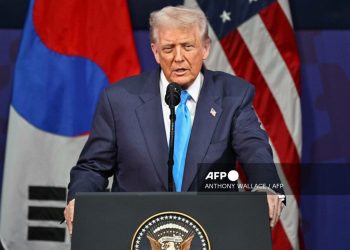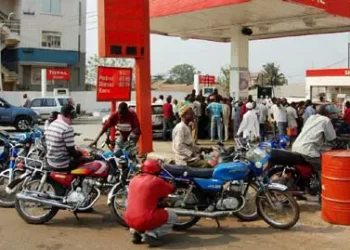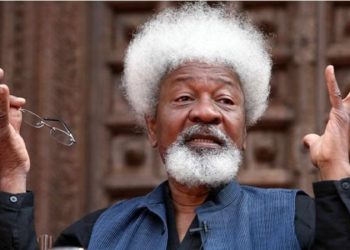The United States government emphasized the need for a uniquely Nigerian solution to the challenges of law enforcement and policing.
Jason Smith, the Director of International Narcotics and Law Enforcement Affairs at the U.S. Embassy in Nigeria, made this statement during a stakeholders’ dialogue on insecurity and state policing held in Abuja on Thursday.
The dialogue, which took place in Nigeria’s capital, brought together various stakeholders, including civil society groups and law enforcement officials, to discuss the pressing issue of state police and the broader context of insecurity plaguing the nation.
Smith acknowledged the importance of dialogue in addressing these critical issues, commending the breadth of participation and the collaborative efforts of Nigerian stakeholders to find solutions.
He stated, “The U.S. government has a rich history, spanning over 20 years, of collaborating with our partners in Nigeria to bolster law enforcement and address criminal justice issues.
“We acknowledge the array of challenges currently confronting Nigeria. As previously mentioned, both our countries operate under similar federal systems, yet approach law enforcement differently. Other nations have their own unique methods.
“My purpose here isn’t to dictate solutions to Nigeria, nor to prescribe a perfect remedy for enhancing service provision or policing. There’s always room for improvement, but it must stem from a solution intrinsic to Nigeria. I’m particularly impressed by the diverse array of stakeholders present today—civil society members investing their time and energy in a dialogue about how Nigeria can collectively address these challenges and generate recommendations for enhancing policing.
“Police forces are integral to any nation, serving as vital components of government infrastructure responsible for upholding and enforcing the law, thereby ensuring public safety and fostering stability.
They play a pivotal role in establishing the rule of law necessary for a nation to reach its full potential.
“Ultimately, whatever path Nigeria chooses to pursue, I am confident that we will eagerly seize opportunities to continue collaborating with our Nigerian partners. Together, we will work towards finding solutions and supporting Nigeria’s efforts to enhance policing services, deliver better public services to its citizens, and foster trust in its institutions and the rule of law.”
Okechukwu Nwanguma, Executive Director of the Rule of Law and Accountability Advocacy Centre (RULAAC), highlighted the urgency of the debate, driven by escalating kidnappings, banditry, and the perceived inadequacies of the current police structure.
Nwanguma explained, “The decision by the President and state governors to establish state police is a response to these challenges. However, the debate is complex, with concerns over potential abuse of power and politicization.”
According to him, the Civil Society Panel on Police Reform had previously advised that any move towards state policing must adhere to principles of operational autonomy and professional practice.
He further stated that as the National Assembly considers legislation to establish state police, the dialogue aims to incorporate diverse perspectives to find the most effective solution for policing and security in Nigeria.
Professor Etanibi Alemika provided the keynote presentation, focusing on the intersection of democratization, decentralization, and police effectiveness.
The stakeholders’ dialogue aimed to ensure that any decision is not only participatory and inclusive but also transparent and informed by a variety of viewpoints.
Other speakers at the event emphasized the complexity of the situation and the need for a nuanced approach that balances the potential benefits of state policing with the risks it may pose.
They advocated for a continued partnership between Nigeria and international allies, such as the United States, to support the country’s pursuit of improved law enforcement and public service.















































